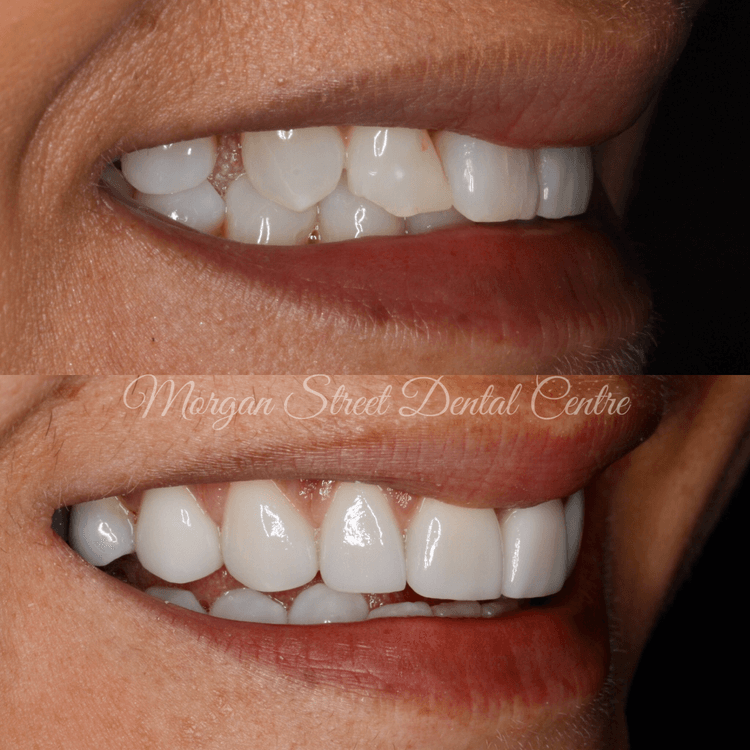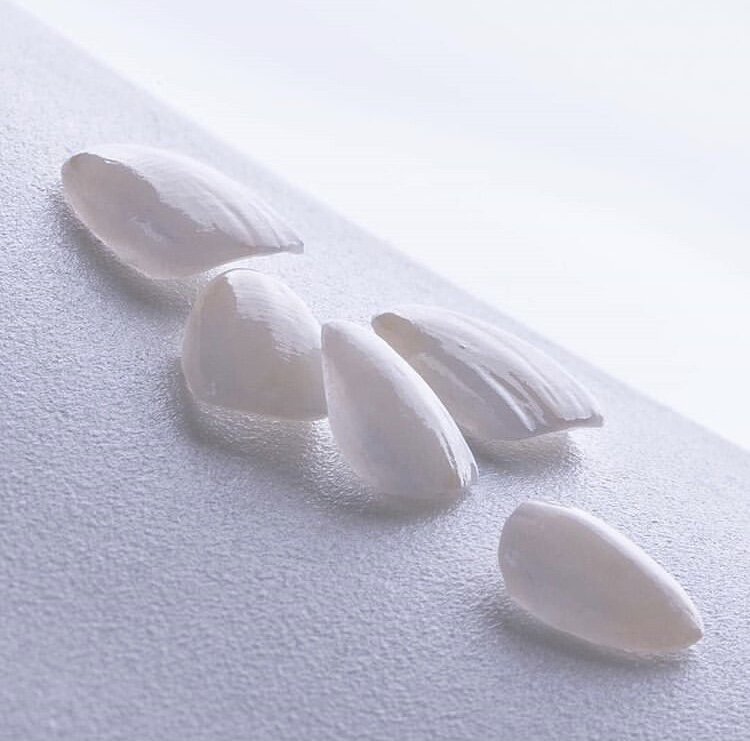
If you have chipped, stained, gappy or misaligned teeth, dental veneers may offer a viable cosmetic option to correct these issues. The thin laminate shells are shaped and contoured to precisely cover the aesthetic flaws in your smile. Dental veneers may be fabricated from two types of tooth-coloured materials: porcelain and composite resin.
Depending on your preference, budget and dental condition, there are several factors to consider when it comes to selecting the right material for your dental veneers. Let’s take a look at some of them.
Porcelain Veneers vs. Composite Veneers
If you want your dental restoration to possess a life-like and natural quality, most dentists would recommend porcelain veneers. That’s because the porcelain material has an uncanny ability to mimic natural teeth. It has a translucent quality that reacts to different lighting conditions in a similar way to tooth enamel. This unique characteristic gives porcelain veneers a sense of layered depth and shine that is not possible with composite veneers. Even when viewed within close proximity, porcelain veneers are almost indistinguishable from natural teeth.
Both porcelain and composite resin may be colour-matched to blend in with your natural teeth. This is also why composite resin is favoured as a filling material over traditional amalgam. However, composite resin is rather prone to staining while porcelain is highly stain-resistant. Unlike composites, the smooth, impervious porcelain dental bonding material will not easily pick up stains from heavily pigmented foods and beverages or cigarette smoking.
Porcelain veneers have another strong advantage in terms of durability. Once bonded to your existing teeth, porcelain veneers hold tightly to your healthy tooth structure to create a solid restoration that can last for many years – i.e. between 10-15 years, with proper care and regular dental check-ups.
Although porcelain veneers cost significantly more than composite veneers, not only do they last longer, they generally produce more predictable and aesthetic looking results as compared to teeth laminates made with composite resin.
The cost difference may also be attributed to the way porcelain veneers are applied and the longer time it takes to create them. Unlike composite veneers that are directly bonded to the tooth by the dentist in just one visit, porcelain veneers are generally fabricated in a dental laboratory by a technician. The overall fit, appearance and colour of porcelain veneers are carefully crafted in the lab.
Apart from the cost factor, perhaps the only disadvantage of porcelain veneers is that they cannot be repaired. Once chipped or broken, porcelain veneers need to be replaced. It should be noted however that porcelain is a much stronger material than composite resin. While it may cost half as much to get composite veneers done as compared to porcelain veneers, they typically last half as long.
The advantages of porcelain veneers are pretty obvious. Porcelain veneers offer the most natural, tooth-like aesthetics – the ultimate goals of a cosmetic treatment. Then again, if you are looking for a more cost-effective or reversible treatment solution, composites may be the way to go.
Whichever material you choose, both porcelain and composite veneers can offer an effective and aesthetically pleasing smile makeover without the need for complex surgery – which already gives you something to smile about!

Alternatives to porcelain or composite veneers
If extensive restoration of a tooth is required due to aggressive wear, decay or fracture, a dental crown may be the best solution. It completely encases the tooth, sealing and binding it together to improve the strength and appearance of your tooth.
Dental crowns ensure the long-term health of badly broken down teeth, in any area of your mouth, especially where the restoration needed is extensive, or in a high pressure area such as the molar teeth at the back of the mouth. They can also re-shape and align misplaced, discoloured teeth. They are usually required following root canal therapy.
Talk To Us
You should make the choice between porcelain or composite veneers carefully and in consultation with your dentist.
If you look carefully at all of your options to replace your missing teeth and consider your priorities and what you want the prosthetics to accomplish, you should be able to make a final decision with confidence.
For more information, call Morgan Street Dental Centre today on 02 69219500!
